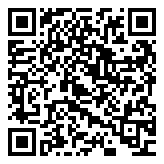- Home
- About Us
- IT Services
- Understanding IT
- Understanding Shadow IT
- Understanding Your Virtual Identity
- Understanding the Modern Office
- IT Threat Glossary
- Understanding Business Continuity
- Windows Server 2003: End of Life
- Understanding the Internet of Things
- Understanding Network Security
- Understanding SOX
- Understanding BYOD
- Understanding PCI DSS
- Windows XP End of Life
- Understanding HIPAA
- Cloud Computing
- News & Events
- Blog
- Support
- Contact Us
- Home
- About Us
-
IT Services
-
Understanding IT
- Understanding Shadow IT
- Understanding Your Virtual Identity
- Understanding the Modern Office
- IT Threat Glossary
- Understanding Business Continuity
- Windows Server 2003: End of Life
- Understanding the Internet of Things
- Understanding Network Security
- Understanding SOX
- Understanding BYOD
- Understanding PCI DSS
- Windows XP End of Life
- Understanding HIPAA
- Cloud Computing
- News & Events
- Blog
- Support
- Contact Us
Managed IT Force Blog
What Does Your Business Need to Keep it Secure?
Your business is your livelihood, so it only makes sense to invest in its protections so that your livelihood is secure. This will require a strategic approach. Let’s go over what your business needs to remain sufficiently secure, and what you should look for from each to get the best, most secure option.
First, let’s consider what kind of data you might have that a cybercriminal would be interested in stealing.
What Does My Business Have That's Worth Protecting?
Regardless of your organization’s size or industry, you almost certainly—actually, scratch that, you definitely—have data that is of value to cybercriminals. You accept payments, don’t you? Chances are, some if not most of these payments are in the form of credit. This data alone is worth quite a bit.
Then you also have to consider your own company’s financial accounts and details, the other data you’ve collected regarding your clients, or any of your company’s trade secrets. There’s also the possibility that your business isn’t the final target at all, and that you’re simply being used as a convenient means of accessing their true target.
So there’s plenty that any business has to offer that a cybercriminal would be interested in, at the expense of the business’ finances (both in terms of rectifying the attack and losing business opportunities) and of its reputation.
The Right Cybersecurity Solutions Can Help Ensure Your Business’ Data Remains Safe
There are a variety of things that you can (read: should) do to protect your business, from training your employees to be more security-conscious throughout the workday to maintaining a comprehensive backup and disaster recovery strategy. Even more fundamentally, however, you need to ensure that your business’ network is protected through dedicated and properly-configured cybersecurity tools.
These tools involve:
Network Firewalls
The most desirable threat to your business (stay with me here) is one that you don’t have to deal with at all. A properly-configured firewall will help keep these threats at bay by blocking them before they enter your network.
Antivirus
Again, the best threats are the ones that are neutralized before you ever have to worry about them. An antivirus program with updated threat definitions can help keep your network free of the vast majority of issues.
Multi-Factor Authentication
This is a security feature that augments the traditional password authentication measures we’re all so familiar with. The hard truth of the matter is that passwords aren’t all that great of a security measure, as they’re either too easy to guess or too difficult to remember. While we recommend that you still use unique passwords for all of your accounts, MFA takes the security they offer and increases it exponentially by requiring an additional proof of identity—oftentimes, a generated code or a biometric identifier.
Physical Security
While it might seem odd to bundle the locks on your doors and a security camera system with your cybersecurity, the digitized nature of these solutions and the capabilities they allow, make them an invaluable part of your cybersecurity stance. Data theft can include someone copying your data onto their own hardware, or even walking off with some of your data storage devices, so keeping those who would do so out of your business is critical as well.
We Can Help You Accomplish All This and More
At Managed IT Force, we take our clients’ cybersecurity very seriously, as our success is tied directly to theirs. Find out more about how we could help protect your business by calling 724-473-3950.
About the author
Dan has 25 years of progressive experience in the IT industry. He has led three successful companies focused on small and medium business IT solutions since 1997.
Tag Cloud


Comments